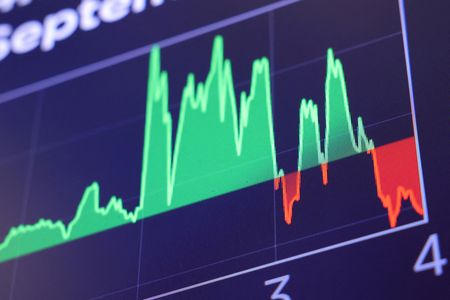JOHANNESBURG (Reuters) -The South African rand weakened on Monday as protests in Chinese cities against the country’s strict zero-COVID curbs raised investors’ concerns about the growth implications for the world’s second-largest economy and hit global market sentiment.
At 1521 GMT, the risk-sensitive rand traded at 17.1100 against the U.S. dollar, about 0.23% weaker than its closing level on Friday.
The rand is used by some investors as a proxy for emerging market risk and is highly susceptible to swings in investor confidence.
“Persistence of a harsh zero-COVID policy in China would negatively affect EMs (Emerging Markets) into 2023,” Investec analyst Annabel Bishop said in a research note.
No major South African economic data releases were due on Monday.
Local investors on Tuesday will turn their attention towards third-quarter unemployment data, which could provide some clues on the health of the South African economy.
Shares on the Johannesburg Stock Exchange rose slightly, with the Top-40 index ending 0.36% higher, while the broader all-share index closed up 0.3%.
The South African government’s benchmark 2030 bond also slipped, with the yield rising 5 basis points to 10.270%.
(Reporting by Alexander Winning and Bhargav Acharya; Editing by Kirsten Donovan and Susan Fenton)











